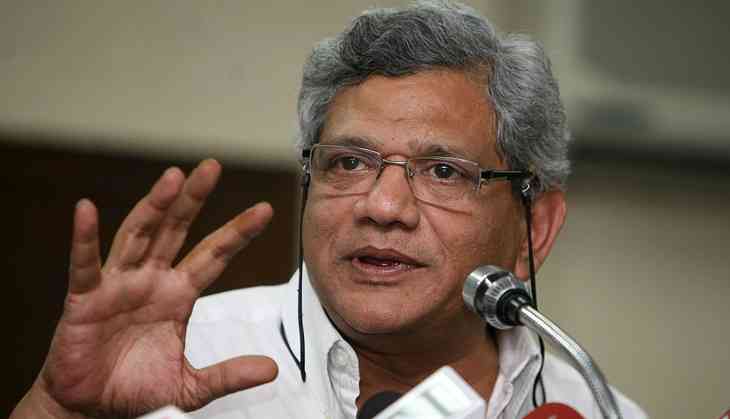By denying Yechury a third term in Rajya Sabha the CPM is nailing its coffin shut

The Communist Party of India (Marxist) (CPM) seems to have lost its will to live. The decision of the party leadership to not let Sitaram Yechury have a third term in the Rajya Sabha is an example of the mechanical functioning of the party's mind.
It also shows the existential dilemma that the party has not been able to resolve – the self-image of being a revolutionary political party which is fighting to enact revolution that is contradicting its reality of being a party that is struggling to retain its Parliamentary relevance.
Sitaram Yechury, like his predecessor Prakash Karat, is no mass leader. He has not emerged from mass political movements. But unlike the previous general secretary of the party, he is well-versed in Parliamentary politics. Despite being a leader of a party of dwindling fortunes he has been able to emerge as a credible voice of democratic causes.
Yechury has worked very hard to earn respect, even in the eyes of his opponents, and it is not easy to ignore him.
It was therefore very wise of the Congress to have thought of sending Yechury on its strength from West Bengal. Congress' intent and message needed to be understood. – it was important to have a person with the clarity of thought and vision with unambiguous articulation like Yechury to be in the Parliamentary space which has been totally hegemonised by the BJP.
The Congress rightly realised that neither its leaders, nor that of any other non-left party, have an unfaltering voice like Yechury's – hence its eagerness to make space for him in the Rajya Sabha.
The decision making organ of the party is using the shield of its so called ethical policy of not giving more than two terms to a member. It was also said that the party general secretary should not fritter away his energy in Parliament. He should rather be busy building up the revolutionary party.
But as things have been, the CPM has rarely been seen in action outside the space of Parliamentary politics. In the last three decades, no major movement has been launched by the party on the issues for which the new social movements have fought.
It was, in fact, its presence in Parliament which led these movements to give space to its leaders in the rallies that they had mobilised.
Yechury is a true politician of Parliamentary democracy. His ability to build bridges and talk in a non-ideological language help him make friends in unlikely quarters. He is the man, most needed at this hour, who with facts in his arsenal corners power with wit and sarcasm.
The CPM, however, thinks otherwise.
It is said that his detractors in the party are responsible for this decision. He has been attacked earlier for allowing the West Bengal unit to fight the Assembly elections in alliance with the Congress. But if the threat of fascism is real, he was right in going for the broadest possible alliance.
The decision of the party to withdraw Yechury from the Rajya Sabha means denying him a voice. It was his standing as a Parliamentarian which attracted the media towards him. Through him, the Left was also heard. Now with an insignificant presence in the field and virtually voiceless in the Parliament, the CPM is in danger of slipping out of the political conversation altogether.
It also tells the people that this party is not interested in a serious national role. At least here it has been consistent.
To deny Jyoti Basu prime ministership, Somnath Chatterjee presidentship and now Yechury a third term in the Parliament is proof that leave alone the question of ideology, CPM has lost the ability to think strategically.
When you are in a war and retreating and you forsake the only shelter or breathing space you are given – that doesn't amount to bravery, but proves that you are a suicidal fool. That is exactly what the CPM is turning out to be.

